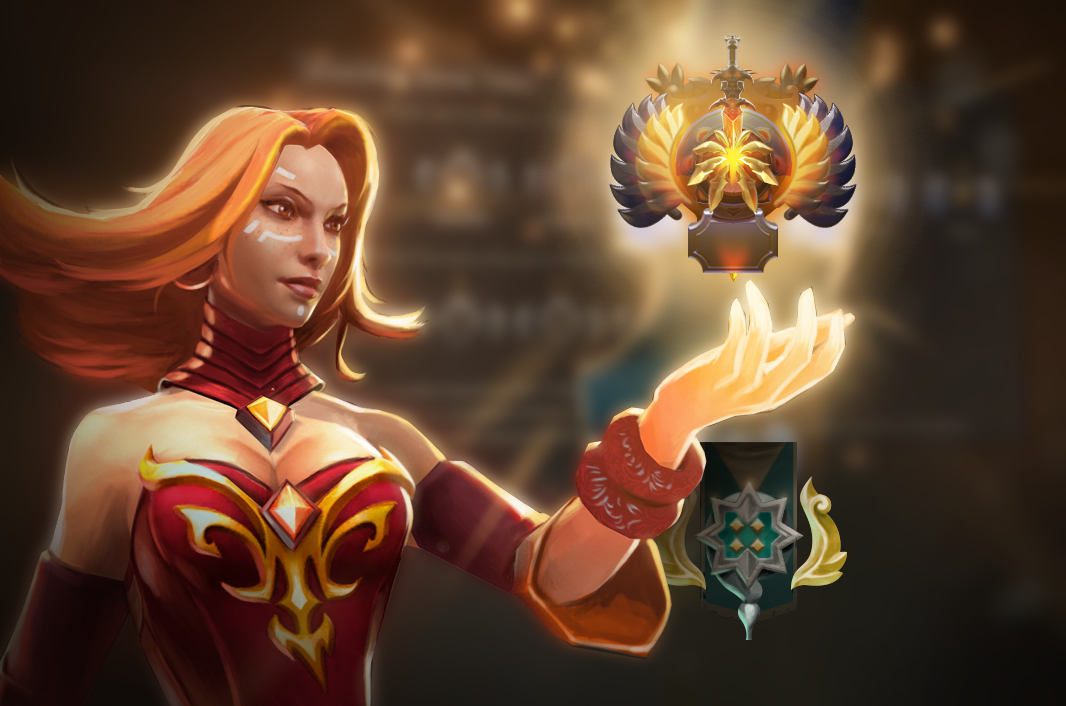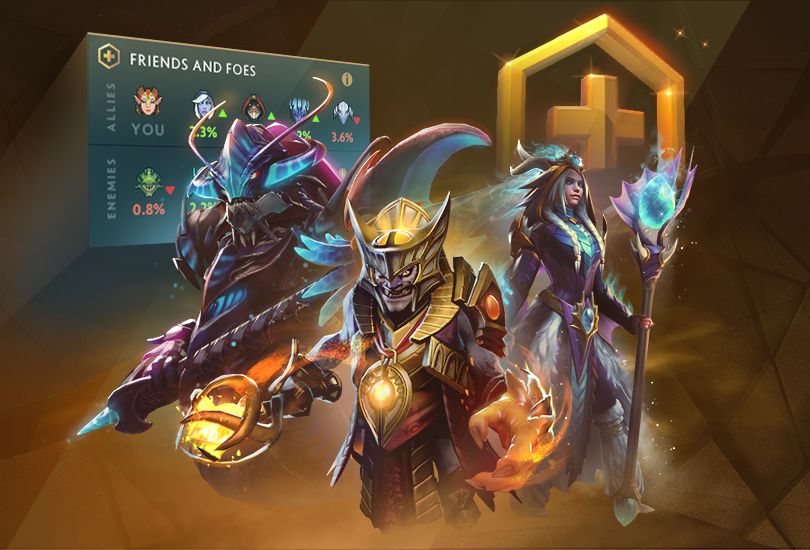It appears that there were some issues with the Dota 2 matchmaking rating changes that were rolled out in September. Valve said in its latest Dota 2 blog post that "some players, especially at the high end, have experienced a significant drop in matchmaking quality as a result of our recent iterations," and so it's made further changes to the system in the most recent game update.
The new update adds a rule for matchmaking for Immortal ranks intended to reduce some common "negative behaviors" and make solo queuing more viable, and also adds new restrictions on what solo and party matchups are allowed. Numerous bugs in the matchmaking system have been fixed, and there will be a greater emphasis on "having supports not be the highest MMR players in a game."
The update also makes some changes to the post-game evaluation screen, and adds a post-game survey that players will sometimes be asked to complete that "allow us to gather more player sentiments on match quality to help find common patterns to what makes matches enjoyable vs what makes them unenjoyable." Some methods of reporting players that weren't rated-limited have been removed "in order to improve the signal-to-noise ratio," and Valve is also taking more steps to crack down on toxic players by disabling chat and voice functionality for anyone whose behavior score is below 3000.
The previous update included a wave of bans on players "at the very extreme edge" of toxic and negative behavior, but that only impacted a small percentage of the player base. "We also wanted a more gradual system to address players that are not at the furthest extreme but are still big outliers from the general player population," Valve explained.
"We believe this more gradual user-facing reinforcement mechanism will be valuable for both protecting the larger population from outliers and as a warning system for players who are moving in the wrong direction that might encourage them to improve. We set the threshold score at 3000 due to the low probability that anyone would be that low without having had a consistently negative impact on the experiences of many different teammates."
Valve warned that matchmaking could be "a little unstable" over the day or two following the rollout of this update, but invited players to continue submitting feedback on the changes once things had stabilized. "Our focus going into the next few weeks will be on monitoring and measuring the results of this update and following up as needed based on what we learn. The other big category we are going to be focusing on soon is revamping the new player experience for an update in the future," the blog post says.
"In addition, a lot of the ongoing work we are doing on smurf detection will indirectly help us in the future with placing new players into more ideal matches once they’ve completed their initial new player experience phase. We are hoping that after we get matchmaking into a better spot, it’ll be an ideal time for brand new players to join in as well as for existing players to invite their friends into the game with the help of a better new player ramp."










